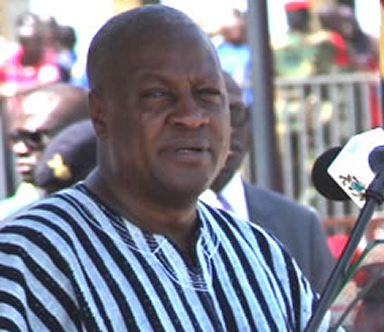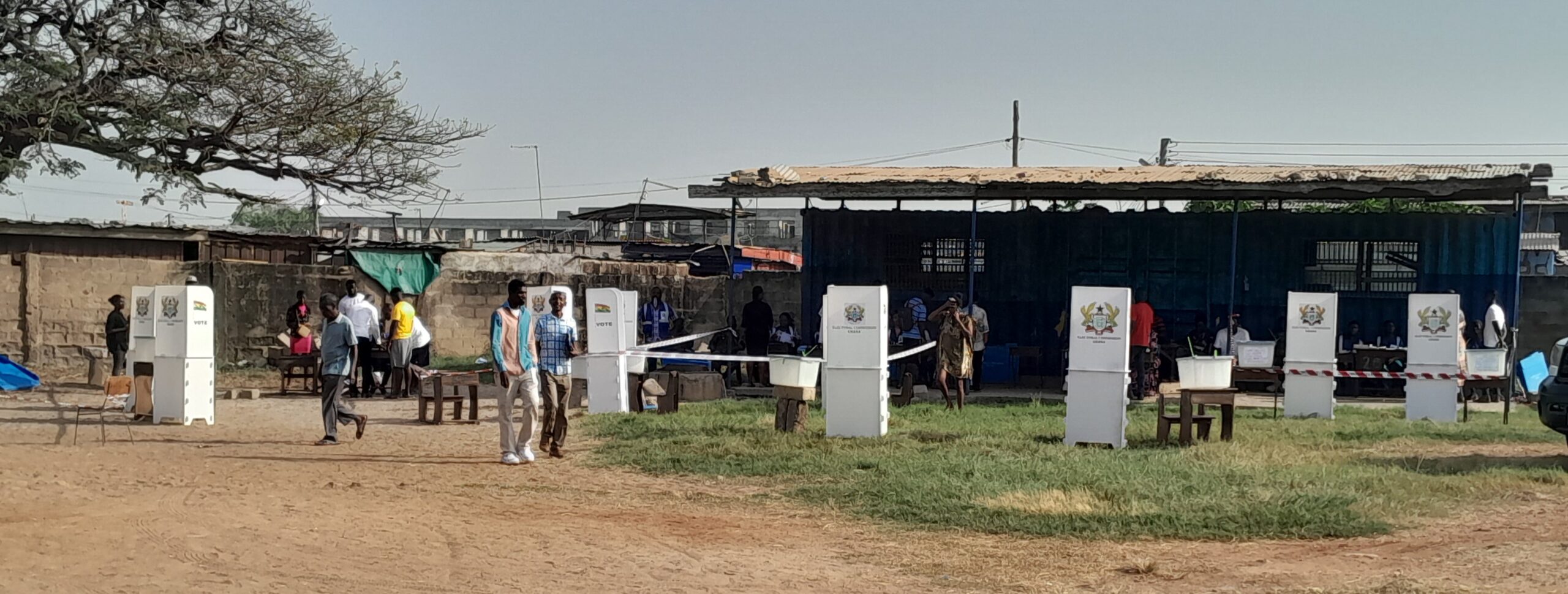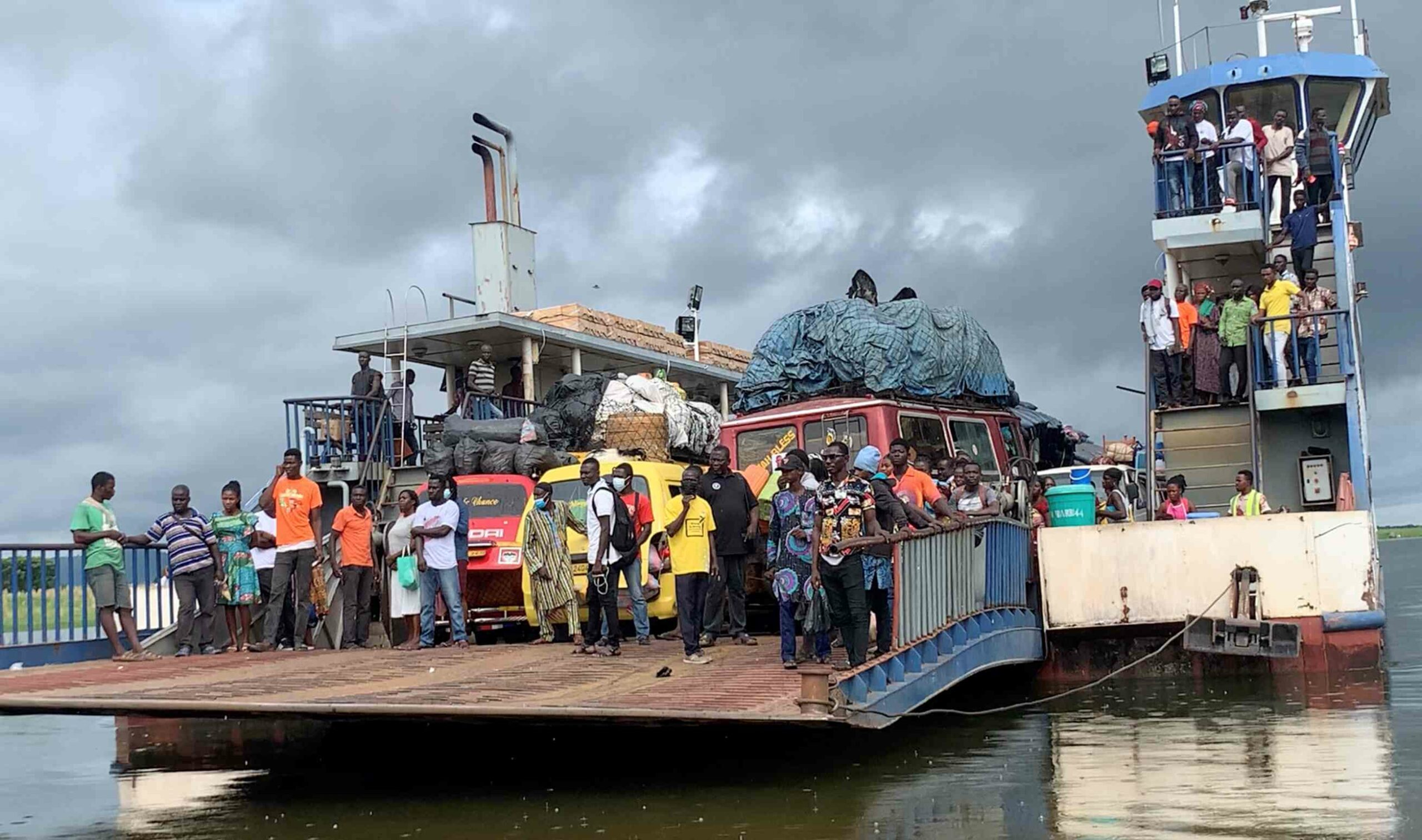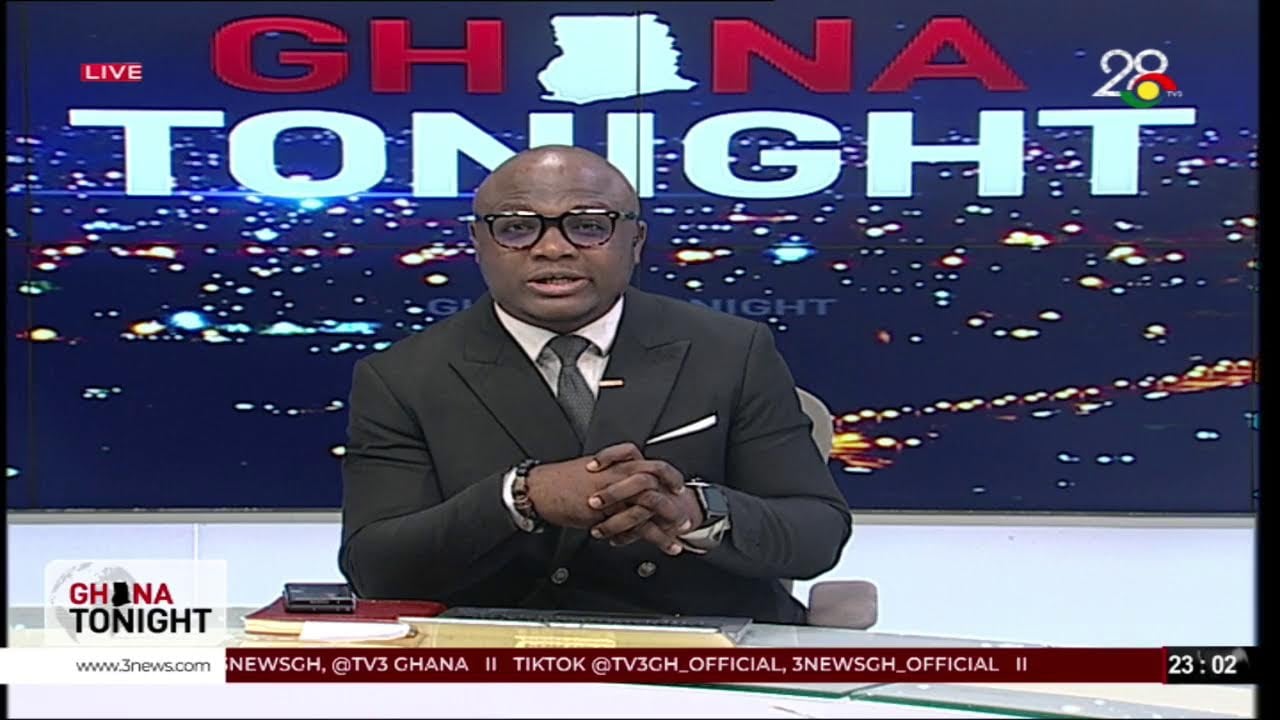
I was here in 2015 to speak at the Oxford Africa Conference on "A Continent on the Move: People, Politics and Business Across Borders."
That opportunity, four years ago, to actively engage a broad range of stakeholders was mutually beneficial and I believe today's will be even more rewarding.
A few of my compatriots had the honour, as I stated in 2015, of being trained in this prestigious institution of learning- Professor Kofi Abrefa Busia, a former Prime Minister of Ghana, former President John Agyekum Kufuor, one of my predecessors, a legal luminary, Mr. Tsatsu Tsikata and a Governance Expert and University Lecturer, Professor Kwamena Ahwoi.
I did not have such a distinguished opportunity, but I can assure you I received a reasonably good education from Ghana's premier University, the University of Ghana at Legon, of which I am very proud.
Thank you for the opportunity to be back here again at Oxford.
Professor Wale Adebanwi, the Oxford African Studies Centre and the Saïd Business College- thanks for the collaboration and invitation to share my thoughts on Democracy and Elections in Contemporary Africa.
As a historian, the temptation is great for me to begin my exposition from the theories on the 'state of nature' by the great thinkers, Hobbes, Locke and Rousseau as they apply to the social contract and the beginnings of governance in human society.
But such a venture will require the whole day to accomplish.
In my allotted time of 30 minutes, I will carry out a brief discourse on current developments in respect of democracy and elections in Africa and hope to have the opportunity to expatiate more in the Question and Answer session.
Democracy, ladies and gentlemen, is an antithesis of dictatorship, authoritarianism, tyranny or despotism. Democracy is a system that promotes the participation of the citizens in how they are governed.
It reposes sovereignty in the people on whose behalf leadership is exercised. It is based on the rule of law, respect for the rights and freedoms of citizens.
Elections are an instrument for exercising choice of the people on who occupies an office of leadership.
Elections are therefore an exercise of the people's right of choice as to who their leaders at various levels of governance should be, often for a period of time defined by law.
But make no mistake, elections are conducted as well under authoritarian rule. However, the system of elections under such circumstances are rigged to achieve a predetermined outcome.
Democracy allows an environment that promotes creativity and innovation.
People will always make a choice for a system of government that allows them to express themselves freely and be able to have a say in how they are governed.
Africa has experimented with different systems of government since gaining political independence from colonial rule, but three main eras can be recognised.
The immediate post-independence era of one-party rule, the era of military dictatorships, and from the turn of the millennium what one may call an African democratic spring.
This saw a blossoming of constitutional rule and democratic governments across the continent.
From the early 1990's as a result of pressure from their citizens, civil society organisations, external actors, and the general global environment, many African countries begun to open up.
Constitutional rule replaced military dictatorship, elections became the norm rather than the exception, respect for human rights and freedoms, an expanded media space all became the trend to follow.
Even pseudo democracies, which still had autocratic leaderships were forced to join the train and allowed elections that turned out often as high as over 95% endorsements of the regimes in question.
Recent events however reveal that citizens have the ability and the will to force democratic change. Little sparks can trigger a chain of events that end up dislodging even the most entrenched dictator.
When the people have suffered enough, cowardly citizens who earlier fled at the least sign of the heavy hand of repression, become so outraged that they embrace death and injury as a worthy sacrifice in the confrontation with dictatorship.
Removal of subsidies last December shot-up the price of bread, a staple food item in Sudan. Spontaneous protest beginning in Atbara quickly spread.
As the protests continued, the protestors gained strength in numbers and not even the brutality of the security services could douse the fire that had been lit.
A similar fire was lit in Algeria when the ailing President announced that he was going to run for a 5th term in office. Spontaneous protests erupted leading to the collapse of the regime.
Earlier in the Arab Spring, uprisings of the people swept strong men, Ben Ali, Hosni Mubarak and Muamar Ghaddafi out of power.
In Gambia, strong man Yahaya Jammeh eventually had to go into exile, following initial attempts to challenge the result of an election that had given victory to his opponent, Adama Barrow.
To consolidate democratic developments in Africa, the continental body, the African Union, in its attempt to capture the will and desire of the people, provided a robust normative structure to guide member states.
In its mission of democracy promotion, the AU built an expansive framework and adopted protocols, mechanisms and institutions for implementation.
These mechanisms and institutions have been instrumental in strengthening democratic governance in the AU Member States and aided those in the transition from conflict and authoritarian regimes.
This is a departure from the predecessor, Organization of African Unity (OAU) Charter of 1963, which embraced the doctrine of non-interference in the internal affairs of Member States.
Furthermore, the AU Constitutive Act embraces a new doctrine of non-indifference to human rights abuses within the territory of another AU Member States.
This Act and the 2007 African Charter on Democracy, Elections and Governance are the continental body's framework for the protection and promotion of democracy.
Cumulatively, these tools have emboldened the AU in its democracy-promotion and good governance agenda.
The democratic spring in Africa has impacted positively on many African countries. Over the last decade, average GDP growth in many countries has ranged between 4 and 6%.
Many countries have seen an upsurge in foreign direct investments. Africa has enjoyed the fastest growth in telecommunications and IT in this period.
The African middle class has prospered and has been one of the fastest growing in the world. Per capita income has increased significantly for many African states.
The successful implementation of the Millennium Development Goals has seen achievement of reduction of hunger and malnutrition. Many African countries have seen an increase in primary school enrolment and achievement of gender parity in enrolment.
Average life expectancy has improved. Widespread use of vaccinations has seen a significant drop in under-five mortality and many children are surviving and thriving.
All these positive developments are the dividends of democracy.
As the Chairman of the Tana High Level Forum on Security in Africa, I had the privilege last week in Bahir Dar, Ethiopia, to present a summary of the report on the State of Peace and Security in Africa.
The report noted some successes achieved by Africans in the quest for peace and good governance in the year 2018.
? The report noted the holding of elections in 27 countries and successful transfers of power;
? It noted an expansion of space for civil society engagement despite the considerable risks the operators face;
? The report also noted the growing involvement of young people, braving the odds stacked against them in the political space, to join politics, seek elective positions in parliament or public office;
? The youth were also taking advantage of the digital revolution to put developmental issues of concern to them on the front-burner of national, continental and global agenda;
? As game-changers in many respects, youth activism and visa liberalisation are making the free movement of people, goods and services across the continent easier.
? They are, in turn, producing impulses capable of improving regional integration and cross-border trade, and also significantly contributing to overall GDP;
? The year 2018 saw all but three African countries meet and sign the Continental Free Trade Agreement (CFTA), which recently achieved the record threshold of the 22 ratifications required for effectiveness.
All the above indicate significant strides made towards political and economic liberation of the people in Africa and paint a picture of a continent definitely on course in delivering on the will of the people.
Ladies and gentlemen, for example, if this Free Trade Agreement is faithfully implemented, and the arithmetic works out as planned, it may just be what the continent needs to set itself on the pathway towards achieving the African Union's Agenda 2063, which is an integrated, prosperous and peaceful Africa.
This prospect is achievable and the signals are positive.
Ladies and gentlemen, notwithstanding the significant gains made, African democracy is still fragile and faces major challenges. The dividends of democracy are still not immediately tangible to the African population.
Major inequality exists and the fruits of economic growth are not shared fairly down the class chain. Many vulnerable groups are losing out, while affluence of the growing prosperous classes is being flaunted in their faces.
Social safety nets have not been enough to stem the growing divide between rich and poor. Citizens begin to question the need to exercise their franchise during elections when they feel no tangible improvement in their lives.
This could commonly be referred to as democracy fatigue.
Africa is a continent in a hurry. Africa does not have the luxury of time if democracy must thrive.
Former Prime Minister of Ethiopia Haille Mariam Desalegn, said "democracy is not all about elections."
He was right, democracy is about improvements in people's lives, it is about access to social services, it is about jobs and employment, it is about social justice and the fight against corruption.
It is about the establishment of strong institutions.
Africa has a burgeoning population. Growth is not translating into jobs as fast as is necessary to keep up with population growth.
It is estimated that about 12 million graduates are churned out every year in Africa, and yet less than 5 million sustainable job places are available for them each year.
African nations must accelerate growth and ensure that there is a greater diffusion of the fruits of growth down the class chain.
While democracy, elections, free speech and a vibrant media are the greatest assets in the fight against graft and corruption, perceptions of corruption can heighten in a democracy because there is increased open discussion of acts of malfeasance that create an impression that the canker is on the increase.
This heightened perception of corruption, added to the fact that the wheels of justice in a democracy grind very slowly, often leads to a sense of longing for unconstitutional times where persons suspected of corruption could be dealt with without any regard to the respect for human rights.
Low participation of women in elective politics due to socio-cultural factors continue to be an indictment on Africa's democratic development.
In most countries, women form the majority of the population and yet are severely under-represented in elective and public office.
In my own country, Ghana, while women form about 51% of our population, the highest percentage of seats held by women in our parliament is 12.7% in the 2017 Parliament. This is up from 10.9% in the 2013 Parliament.
In many countries, lack of effective decentralisation of power and resources means that development is lopsided and many geographic areas find themselves marginalised and deprived.
This creates fertile ground for all kinds of social agitation and dissension and in extreme cases insurgency. Decentralization and a fair redistribution of wealth are the most effective guarantees for stability and security in a democracy.
Democratic governments must therefore go hand in hand with political and economic empowerment of local populations.
Lack of continuity in planning and development because of frequent transfers of power could also hobble investment and development especially in situations where incoming administrations renege on fulfilling agreements and obligations entered into by its predecessor.
President Obama on his historic visit to Ghana after he was elected, said to Ghana's Parliament that what Africa needs is not strong men, Africa needs strong institutions.
He was very right. Africa needs strong governmental institutions. Unfortunately, regular attrition of staff due to political persecution and their replacement by political apparatchiki does not make for the preservation of institutional memory and continuity in service delivery.
Information technology and the new media are a new development whose impact needs to be understood and mastered.
After leaving office, I have been involved in advocacy on democratic consolidation in Africa. This has gotten me involved in conferences dealing with African democratic and electoral systems.
Africa has come a long way from the era of steel ballot boxes and district counting centres. In past electoral systems, the citizen's duty was to turn out to vote, the rest of the process from counting to declaration of results were done out of sight of the electorate.
Electoral systems have improved since then, with innovations such as vote counting in-situ, biometric registers, verification machines, allowance for observation of elections by party agents, civil society and international observers.
This has improved the integrity of elections and lessened disputes.
But other areas of complication have emerged. The use of IT in results transmission and the possibility of hacking have created new fears about the manipulation of results.
Examples of this can be found in the recent elections in Ghana, Kenya and Sierra Leone.
During the last Presidential Election in Ghana, the Electoral Commission directed its staff to stop using the electronic result transmission system to communicate results to the tallying centre because the system had been compromised.
The results had to, therefore, be tallied manually, leading to attendant tensions in the delay of the announcement of the final results.
As I speak, I am not aware that the Electoral Commission has carried out any investigation into what compromised their IT system. And even if they have, we the stakeholders, the political parties, have not been briefed on what caused the corruption of the system.
In the interest of transparency, it is important for Ghanaians to understand what happened before we go into another election.
Africa is a very diverse continent, with many ethnicities confined into common political boundaries. The role of the underlying law of the land and political leadership must be to include rather than exclude.
Ethnic bigotry is also a threat to African democracy.
Democracy must seek to include and not exclude. Any overt or covert activity, speech or action that seeks to exclude any part of a national population from fair participation in governance is subversive of democracy.
That is why comments by a Senior public official in my country that national leadership should be the preserve of only resource-rich regions of Ghana must be condemned by all well-meaning Ghanaians.
Insurgency in the Sahel and Savannahs are also a growing threat to African democracies. Terrorist groups that are determined to disrupt democratic societies are increasing in activity in the Sahel and savannah regions of Africa.
Democracy cannot thrive in insecurity. Urgent collective action is needed to quell this threat. Already disturbing terrorist activity in Nigeria, Chad, Mali, Niger, Cameroon, Burkina Faso and Cote D'ivoire have the potential of spreading and undermining our flourishing democracies.
All in all, African democracy is blossoming, it needs to be nurtured, it needs to be consolidated. Africans must accept our new democracies as a way of life.
We must create societies that are free, but also disciplined and orderly.
Our democracies must seek to create a decent life for our people in a clean environment that works to preserve our planet.
In this endeavour, we must all be committed to play our part. It is only in this way we can unleash the full potential of our people to create a better society for generations to follow.
Thank you for your kind attention.
This speech was delivered yesterday by the former President of Ghana, Dr John Dramani Mahama, at the Saïd Business School, University of Oxford, in collaboration with The African Studies Centre and the Oxford Africa Business Alliance
Read Full Story

















Facebook
Twitter
Pinterest
Instagram
Google+
YouTube
LinkedIn
RSS